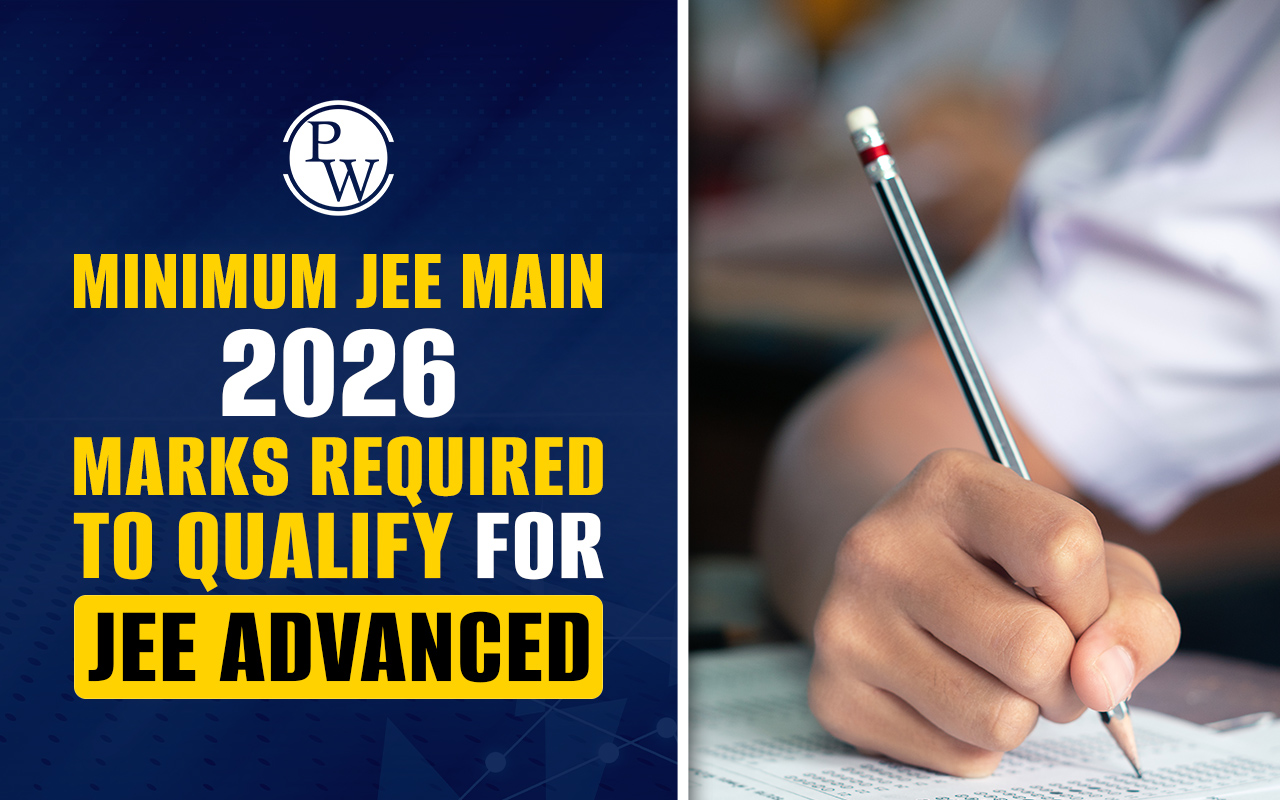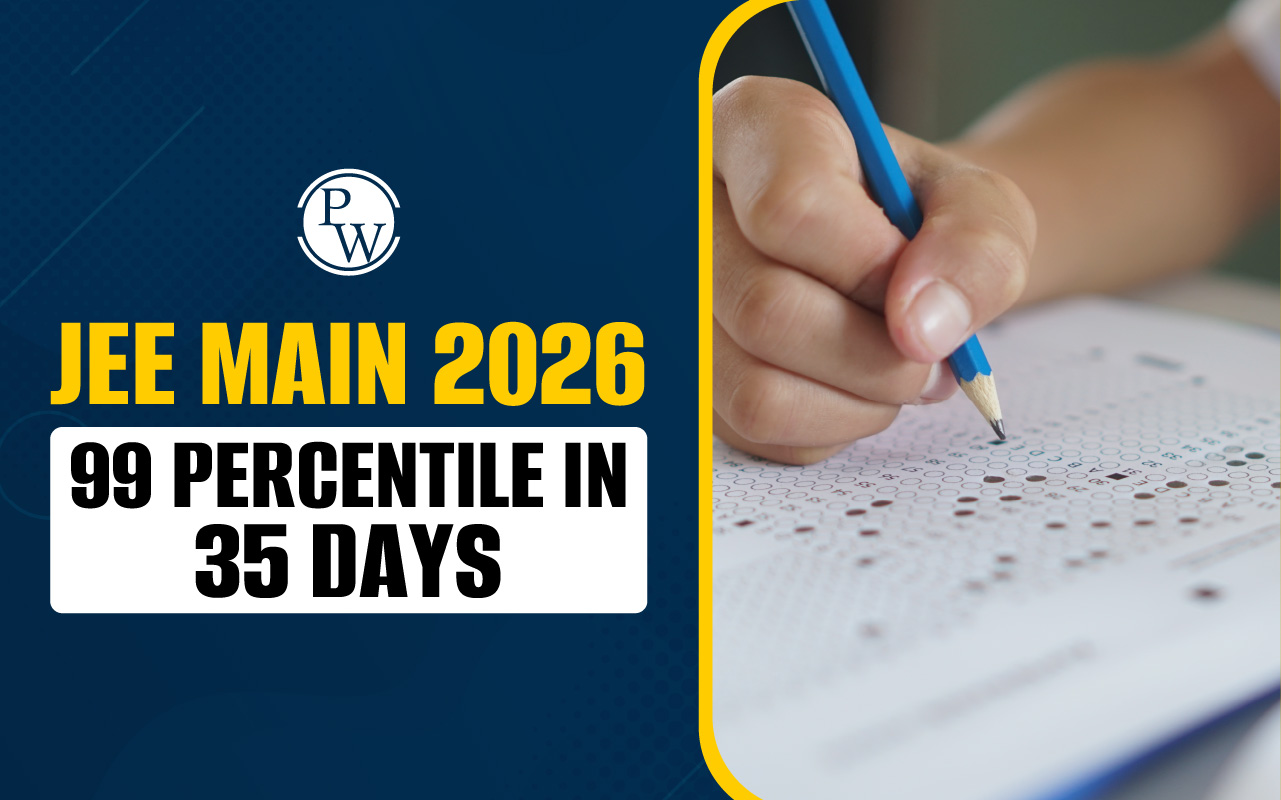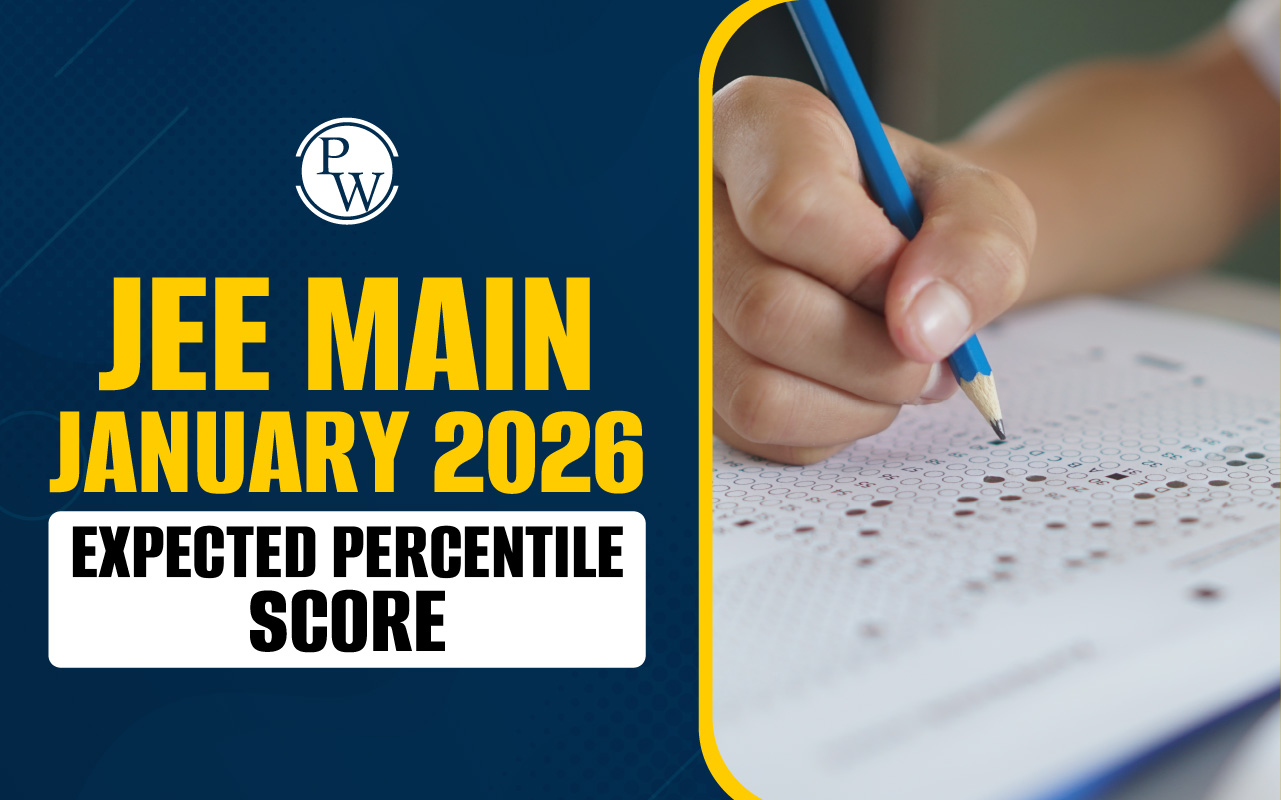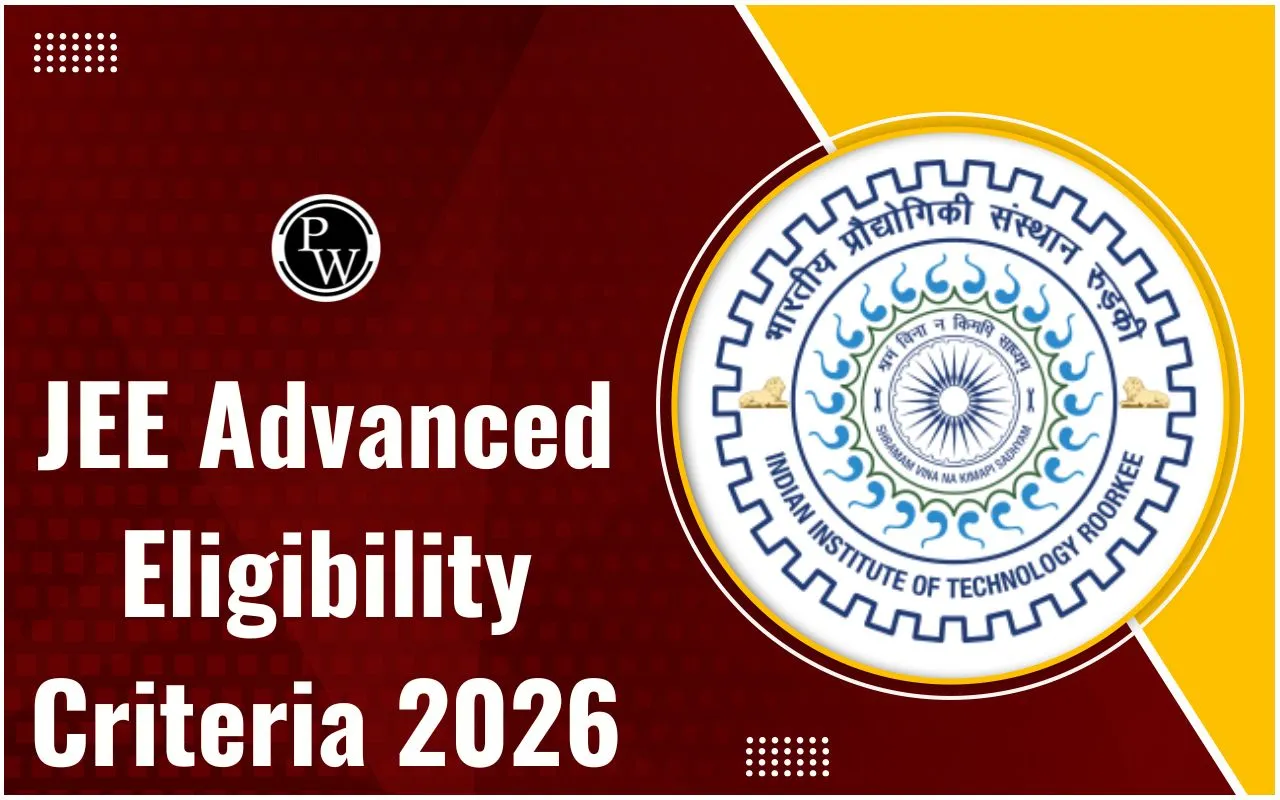
10 High Scoring JEE Main Session 2 Mathematics Chapters 2025: JEE Main 2025 Session 2 is just around the corner, with the exam scheduled for April 2, 3, 4, 7, 8, and 9. With limited time left, focusing on high-scoring chapters can make a big difference in increasing marks. Understanding which topics carry more weightage can save time during these final days of preparation and can also help in improving accuracy in the exam. To uncover the 10 JEE Main Session 2 high scoring chapters for Mathematics section 2025, keep reading.
Importance of High Scoring Mathematics Chapters for JEE Main 2025 Session 2
Mathematics plays an important role in the JEE Main examination, as it is a scoring subject for those who have a strong grasp of concepts and problem-solving techniques. Unlike other sections, Maths needs a balance of speed and accuracy, making it essential to focus on the right topics during last-minute preparation. Some chapters from the vast JEE Main Mathematics Syllabus 2025 have consistently carried high marks in past JEE Main exams. These topics are worth giving 100% effort to make sure that any question from them can be solved with full accuracy. Focusing on the below-outlined 10 high scoring JEE Main Session 2 Mathematics chapters 2025 for the final exam day can help applicants aim for 85+ marks in this section.
10 High Scoring JEE Main Session 2 Mathematics Chapters 2025 for Final Exam Day
Based on the analysis of previous years' JEE Main question papers and expected trends, these chapters in Mathematics are expected to be among the most important and high-scoring ones in JEE Main 2025 Session 2:
-
Functions: This chapter is expected to have around 14 questions in the exam. It is important for understanding fundamental concepts such as domain, range, types of functions, and composition of functions, which are frequently tested.
-
Definite Integration: Around 13 questions are likely to come from this chapter. Integration is a core topic in calculus, and definite integrals, in particular, often appear in numerical-based questions, needing strong conceptual clarity and problem-solving skills.
-
Area under Curves: With an estimated 12 questions, this chapter is an extension of definite integration and generally appears in application-based problems. Understanding graphical representations and limits is important for solving these questions efficiently.
-
Differential Equations: Around 12 questions are expected from this chapter. It involves solving first-order and higher-order differential equations, which are important in both Mathematics and Physics.
-
Sequences and Series: This chapter may include around 16 questions on the exam. Topics such as arithmetic progression (AP), geometric progression (GP), and special series are commonly asked. Hence, having a strong grasp of their formulas and applications is vital.
-
Probability: Around 13 questions are expected from Probability. It is a highly scoring topic involving fundamental probability theorems, Bayes' theorem, and permutations and combinations.
-
Matrices and Determinants: This chapter is likely to hold 18 questions in the paper. Matrices and determinants are straightforward and scoring topics that involve operations such as matrix multiplication, inverse matrices, and solving systems of equations.
-
Vectors and 3D Geometry: With 11 questions from Vectors and 19 questions from 3D Geometry, these topics play an important role in coordinate geometry. Understanding vector operations, direction cosines, planes, and lines is essential for solving these problems accurately.
-
Sets and Relations: This chapter is expected to have 11 questions in the exam. It forms the foundation for various mathematical concepts, including functions and logic, making it an important topic to master.
- Ellipse and Hyperbola: With around 12 questions, these two conic sections are important in coordinate geometry. Mastering their equations, properties, and standard forms can help in solving problems accurately.
Preparation Tips for High-Scoring JEE Main Session 2 Mathematics Chapters 2025
By prioritizing the high-scoring chapters and following an effective study plan, applicants can greatly improve their performance in the Mathematics section of JEE Main 2025 Session 2. Moreover, to further boost their preparation in these final days leading up to the last attempt of JEE Main 2025, applicants can include the following preparation tips:
-
Follow a Step-by-Step Approach: After completing the most important topics, applicants should focus on chapters like Limits and Continuity, Permutation and Combination, Quadratic Equations, and Circles to strengthen their problem-solving skills. These topics often appear in JEE Main and can help improve overall accuracy.
-
Cover Easier Topics Later: Once the major chapters are done, applicants can go through Inverse Trigonometry, Application of Derivatives, Heights and Distances, and Statistics, as they take less time. Sets, Relations, and Functions are basic topics, so a quick revision is usually enough.
-
Master Concepts with NCERT and Previous Years' Questions: Make sure of a strong grasp of fundamental concepts of Mathematics from NCERT textbooks. Solve the past 10 years' JEE Main questions to understand mostly asked patterns.
-
Prioritize Formula-Based Chapters: Topics like Matrices and Determinants, Probability, and Definite Integration heavily depend on formulas. Maintain a formula sheet for quick revision.
-
Practice Mixed-Concept Questions: Chapters like Functions and Vectors and 3D often have application-based problems. Solve different types of mixed-concept questions to strengthen problem-solving skills.
-
Use Timed Practice for Speed & Accuracy: Attempt full-length JEE mock tests and sectional tests under timed conditions to improve speed and minimize errors.
-
Focus on Visualization for Geometry Topics: Topics like Ellipse, Hyperbola, and Area need strong visualization skills. Practice with diagrams and coordinate geometry techniques.
-
Work on Weak Areas Early: Identify weak topics through mock test analysis and revise them thoroughly to avoid last-minute stress.
-
Solve Numerical Problems Daily: Regularly attempt numerical-based Mathematics questions from high-scoring topics like definite integration, differential equations, and sequences and series to build confidence.
To excel in the Mathematics section of JEE Main 2025 Session 2, focusing on high-scoring chapters and following a structured study plan is important. Along with self-study, exam-focused guidance can help aspirants strengthen their understanding and improve accuracy in problem-solving.
For those targeting the upcoming JEE 2026 and 2027 examinations, joining a structured program such as PW Power Batch for JEE, which comes with small batch learning, personalized mentorship, and focused doubt-solving sessions. This well-designed JEE coaching ensures aspirants cover all key topics, which makes their preparation more efficient and goal-oriented.
Study Material For JEE Main 2025 Preparation
Physics Wallah (PW) offers comprehensive study material for JEE 2025 , designed to help students excel in this competitive exam. The material includes detailed theory notes, practice questions, previous years’ papers, and mock tests for Physics, Chemistry, and Mathematics. Each topic is explained with clear concepts and illustrated examples, ensuring a strong foundation
High Scoring Mathematics Chapters For JEE Main 2025 FAQs
Q.1. What are the most important Mathematics topics for the JEE Main 2025 Session 2?
Q.2. Is it possible to score 85+ marks in JEE Main Session 2 Mathematics 2025?
Q.3. What chapters should I skip in Maths for the JEE Main April Session 2025?
Q.4. What are the easy yet high-scoring Maths chapters for the JEE Main 2025 Session 2?










